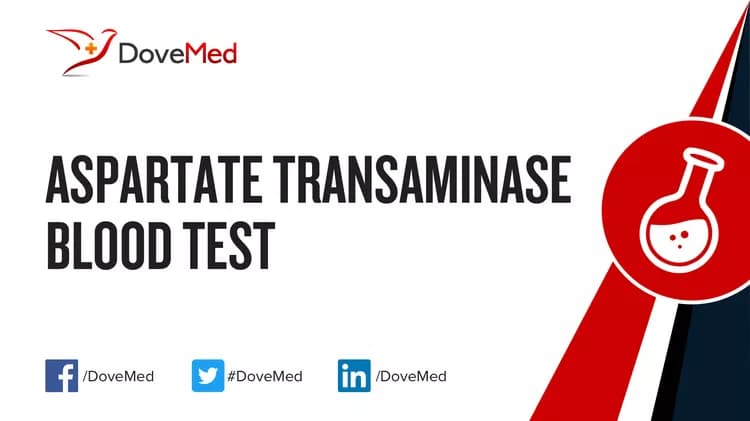What are the other Names for this Test? (Equivalent Terms)
- Aspartate Aminotransferase Blood Test
- GOT (Glutamic-Oxaloacetic Transaminase) Blood Test
- Serum Glutamic-Oxaloacetic Transaminase (SGOT) Blood Test
What is Aspartate Transaminase Blood Test? (Background Information)
- Aspartate transaminase (AST) is an enzyme found in liver and heart cells. It also occurs in lower quantities, in the muscle and kidney cells
- While the normal blood levels of AST are low, any damage to the liver cells releases the enzyme into the blood stream. Consequently, increased levels are detected on testing
- Aspartate Transaminase Blood Test is mainly used to diagnose or monitor liver damage. It is often ordered along with ALT (alanine transaminase, another enzyme found in liver and kidney cells), or as part of a liver panel
- ALT is more specific for the liver and an AST/ALT ratio, also helps in ascertaining the probable cause of liver damage
What are the Clinical Indications for performing the Aspartate Transaminase Blood Test?
Indications for Aspartate Transaminase Blood Tests include:
Symptoms and signs of liver disease, such as:
- Abdominal pain, abdominal swelling
- Nausea, vomiting
- Jaundice
- Dark-colored urine
- Pale stools
- Itching
- Easy bruising
To assess individuals at increased risk of developing liver disease, such as:
- Heavy drinkers
- Those with a family history of liver disease
- Individuals with known/probable history of hepatitis exposure
- Overweight individuals
Monitoring individuals on drugs known to be toxic to the liver, or in monitoring individuals with known liver disease.
How is the Specimen Collected for Aspartate Transaminase Blood Test?
Sample required: Blood
Process: Blood sample is drawn through a needle inserted into the vein (arm).
Preparation required: None
What is the Significance of the Aspartate Transaminase Blood Test Result?
The normal blood levels of Aspartate Transaminase, called the reference range for AST, may vary slightly from lab to lab. Hence, most lab reports come with a reference range, which is used in that particular centre. A physician interprets the results based on the reference values provided.
A standard reference range in wide use is 10-34 IU/L (international units per liter).
AST levels are increased in liver disease; some of the causes of which include:
- Hepatitis (acute hepatitis causes much higher values, as compared to chronic hepatitis)
- Cirrhosis of the liver (formation of scar tissue in the liver), due to a variety of causes
- Hemochromatosis (liver damage results from accumulation of too much iron)
- Liver cancers
- Taking drugs toxic to the liver
- Decreased blood flow to the liver
- Bile duct obstruction
Other conditions that may cause raised levels of AST include:
- Heart attack
- Pancreatitis
- Seizures
- Muscle injury
- Burns
While the ALT (alanine transaminase) levels are usually elevated more than AST in liver disease, leading to an AST/ALT ratio < 1, some conditions like alcoholic hepatitis, cirrhosis, and heart/muscle damage, may cause an increased AST/ALT ratio > 1.
The laboratory test results are NOT to be interpreted as results of a "stand-alone" test. The test results have to be interpreted after correlating with suitable clinical findings and additional supplemental tests/information. Your healthcare providers will explain the meaning of your tests results, based on the overall clinical scenario.
Additional and Relevant Useful Information:
- Aspartate transaminase levels may also be increased following strenuous exercise and during pregnancy
Certain medications that you may be currently taking may influence the outcome of the test. Hence, it is important to inform your healthcare provider, the complete list of medications (including any herbal supplements) you are currently taking. This will help the healthcare provider interpret your test results more accurately and avoid unnecessary chances of a misdiagnosis.
Related Articles
Test Your Knowledge
Asked by users
Related Centers
Related Specialties
Related Physicians
Related Procedures
Related Resources
Join DoveHubs
and connect with fellow professionals


0 Comments
Please log in to post a comment.